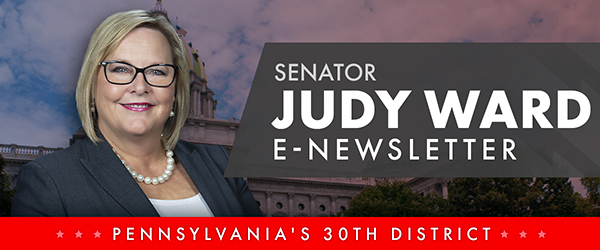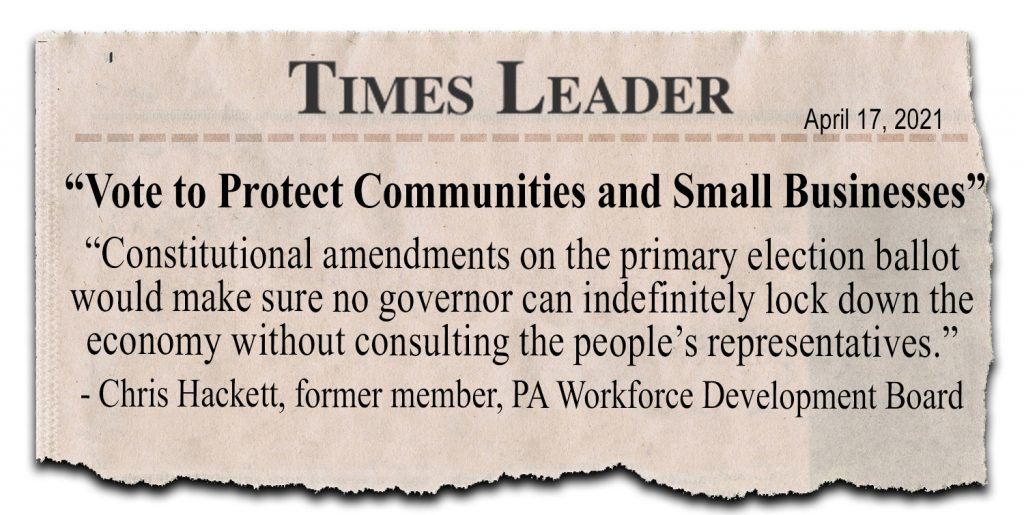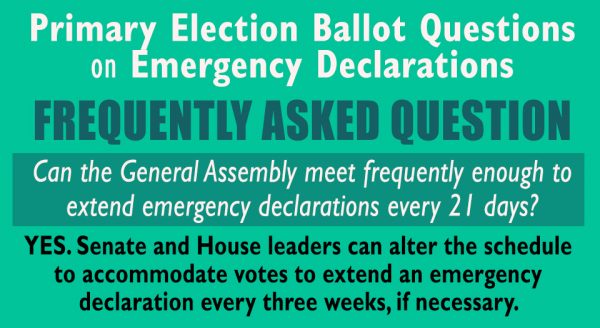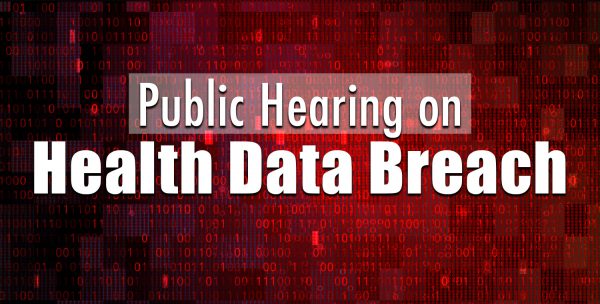
|
|||||
|
In this Update:
Senate Adopts Senator Judy Ward Legislation to Preserve Prescription Drug Assistance for Seniors
The Senate adopted my bill that will allow thousands of older Pennsylvanians to retain eligibility for prescription drug assistance. Unfortunately, while many readily welcome Social Security COLAs, such increases in income result in some seniors becoming ineligible for the programs that provide their life-saving medications. PACE and PACENET are the state’s prescription drug assistance programs that provide life-sustaining medications to 257,000 seniors. Eligibility for the programs are based on income. The Social Security cost-of-living adjustment (COLA) for 2021 is estimated to result in almost 5,100 PACE and PACENET cardholders exceeding the income eligibility limits, meaning those seniors will lose their benefits. Senate Bill 323 extends the current moratorium on increases in income due to a Social Security COLA for PACE and PACENET enrollees for two additional years until Dec. 31, 2023, benefitting 17,800 seniors. The legislation now goes to the House of Representatives for consideration. May 18th Primary Ballot Questions
As I’ve reported to you in previous updates, the May 18 primary election features two proposed constitutional amendments to improve Pennsylvania’s emergency declaration process. There has been a great deal of confusion about what the amendments would accomplish. Under ballot question #1, a disaster emergency declaration could be terminated or extended by legislative approval without needing the Governor’s signature. Your YES vote means a majority of state lawmakers – elected by you and living in our communities – can vote to end emergency declarations and restrictions on citizens. A NO vote means a Governor retains the unrestricted power to continue emergency restrictions indefinitely – even if a legislative majority votes to end them. Ballot question #2 limits disaster declarations to no more than 21 days unless approved by the General Assembly. Your YES vote means emergency declarations would be limited to 21 days unless the General Assembly – again elected by you and living in our communities – approves a longer duration. A NO vote means a Governor can unilaterally extend declarations, including “emergency” provisions, business closures and restrictions indefinitely. To be clear, these amendments are intended to provide clarity and balance to the powers held by the Executive and Legislative branches during a long-term crisis. The amendments do not prevent a governor and state agencies from responding to any emergency. The governor could still declare a state of emergency following any sort of catastrophe. The Constitutional amendments simply ensure these powers would not be open-ended. When it comes to emergency declarations and limits on civil liberties, I think more voices – representing the will of the people – make for better emergency response and a more enduring freedom. Tuesday: Emergency Declaration Questions on the Primary Election Ballot
Here are some answers to frequently asked questions: Will voting YES on the amendments immediately end the current emergency declaration? No. Voting YES would only give lawmakers the opportunity to collaborate with the Executive Branch to avoid many of the negative consequences we have seen as a result of Governor Wolf’s unilateral actions. Is the General Assembly able to meet quickly enough to respond to emergencies? Absolutely. The PA General Assembly proved its ability to move quickly after the governor’s COVID-19 shutdown orders, becoming the nation’s first legislature to meet virtually. Lawmakers quickly delayed the primary election, authorized small business assistance, enacted local government emergency provisions, removed school mandates and ensured healthcare workers had PPE. Can the General Assembly meet frequently enough to extend emergency declarations every 21 days? Yes. Senate and House leaders can alter the schedule to accommodate votes to extend an emergency declaration every three weeks, if necessary. Would the state risk losing federal money for food assistance and other emergency funding if the amendments are approved? No. Legislative leaders intend to work with the governor cooperatively and in the best interests of the people of Pennsylvania to preserve access to federal emergency relief funding, while protecting lives and livelihoods. Will these amendments apply only to the current governor? No. This would apply to all future governors, Republicans and Democrats. You can find more information, including ballot wording and opinions from around the state, here. No Answers from Administration on Data Breach Affecting 72,000
The Senate Communications and Technology Committee convened a public hearing Tuesday to seek answers about a massive data breach of personal health data impacting more than 72,000 Pennsylvanians. After initially agreeing to testify, Department of Health public officials said they would not testify nor answer questions from members. The committee also invited the third-party vendor that was awarded the $22.9 million state contract for COVID-19 contact tracing, but the company did not participate. The committee conducted the hearing to read questions into the record and announced it will evaluate all legal options to get answers for impacted citizens. Measure to Boost Donations for Breast Cancer Research Passed by Senate
The Senate approved legislation that would allow individuals renewing vehicle registrations or driver’s licenses to include an optional $5 donation to the Pennsylvania Breast Cancer Coalition. An estimated 2,000 women in Pennsylvania and 42,170 women nationwide will die from breast cancer this year, and one in eight women in the United States will develop breast cancer in her lifetime. The Pennsylvania Breast Cancer Coalition has been leading the fight against breast cancer since 1993. Throughout the years, PBCC has spent more than 1,500 hours on patient advocacy and contributed more than $4.5 million to breast cancer researchers in Pennsylvania. Senate Approves Plan to Offer Additional Year of Education Due to COVID-19
Parents would have the option to allow their children to repeat a grade level due to the learning disruptions created by COVID-19 under a bill approved by the Senate this week. In current practice, the decision on whether to hold a student back is made solely by the child’s school and teachers. Senate Bill 664 would give parents the option to make that decision for the 2021-22 school year since they are in the best position to gauge their child’s development and educational needs after students have spent much of the past year learning at home. It would also allow parents to extend enrollment in special education programs for an extra year, preventing students with special needs from aging out of the system at age 21. Taking Time to Honor our Police Officers
National Police Week runs through Saturday, but recognizing the risk police officers face is a year-round obligation. Citizens elect lawmakers to pass laws, and society needs police officers to enforce them. It’s a dangerous, often thankless job that has to be done, and it takes a special kind of person to step into that role. Please join me in thanking our local police for vital service they provide to our communities. |
|||||
|
|||||



Want to change how you receive these emails? 2025 © Senate of Pennsylvania | https://senatorjudyward.com | Privacy Policy |






